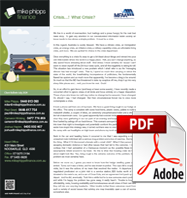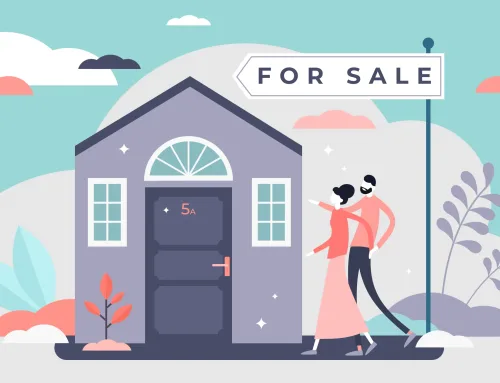We live in a world of overreaction, hurt feelings and a press hungry for the next bad news story. To gain any attention in our oversaturated information laden society an issue needs to rise above a simple problem. It must be a crisis.
In this regard, Australia is surely blessed. We have a climate crisis, an immigration crisis, an energy crisis, an inflation crisis, a military capability crisis, an affordable living crisis, and more. We are spoiled for choice in the crisis department.
Once everything is a crisis it's easy to get a bit blasé about things and retreat into your own little bubble where the world is a happy place. Hell, you can't change anything, so why spend hours stressing about stuff. And stress I most certainly do 'cause I can't seem to wean myself off the 24-hour news cycle, and all this negativity is taking its toll. This situation has introduced a new problem which I shall refer to as the "managing director has had enough" crisis. That is, I spend so much time carrying on about the state of the world, the breathtaking incompetence of politicians, the fundamentally flawed tax system and so much more that apparently, I've become a drag to be around. So much so that the MD has threatened to take my soapbox off me, chop it up into very sharp little pieces and… well, you know the rest. Ouch!
So, in an effort to gain favour (and keep at least some assets), I have recently made a concerted effort to ignore crises of all kinds and focus entirely on a happy disposition. Those of you who know me well may notice no change but be assured, I have changed. Or, should I say, I had changed. But then circumstances forced me to once more contemplate a crisis.
It took a phone call from one of my team. We have a guest living rough in our hedge at the office. The camp is complete with some food items, plastic crates, pallets to build a makeshift shelter, a couple of bikes, an extremely unsophisticated toilet and a wheely bin full of aluminium cans. Our guest apparently had a social circle, and it soon became clear they were gathering in our car park of an evening and keeping warm by lighting fires fuelled by palings off our back fence. This scenario annoyed me greatly, so I drove into town that night to investigate and potentially confront the parties involved. Putting aside how stupid this strategy was, it turned out there was no one home. I approached the camp with car headlights on high beam and shone my torch around. Nothing.
Back in the car and heading home it occurred to me that I was expecting a rough unwashed male individual with a serious drug problem and a box of matches. But here's the thing. What if I'd discovered a female with a small child? What if that person was escaping domestic violence or had other issues that had led to this outcome. I must confess that I had somewhat of a Damascus moment as the possible flaws in my assumptions ticked around in my head. So this is what that housing crisis we hear about might look like. Yes, living rough is the extreme outcome of the problem, but a problem we most certainly have.
Before we move on, I guess you want to know how the hedge dwelling guest saga ended. Turns out it was a bloke, and he was known to police. The cops did a couple of visits, but it was the actions of my team that resolved the matter. A departure was negotiated predicated on a joint visit to a service station; $25 bucks worth of fuel donated to his mate's car, and a can of Coca-Cola, and an agreement he'd pack up and depart. And he did, eventually. Took him a while but he is now someone else's problem and while I'm happy the problem has gone away, it really hasn't. Trouble is housing affordability, rents, housing availability and homelessness are all crises of their own and they roll into one very big headache. Other trouble is that these outcomes result from such a variety of social issues that solving one may invariably open a can of worms somewhere else.
For all these reasons I have some sympathy for local councils and state governments that are trying to find solutions. I have no sympathy for really dumb plans cooked up by bureaucrats after a long lunch and a thought bubble. It is these plans that present a real risk to short stay accommodation operators, and that includes Airbnb houses in the 'burbs.
Let's take a case in point. Noosa Shire has a housing crisis. Same in Byron Bay and no doubt any number of beautiful places that lots of people want to live in, even if it's in a van or living rough. Noosa Shire also has, I am told, on average 40 mums with kids living in cars as a result of leaving the family home due to domestic violence. Putting aside the potentially illegal solution I have to this problem, the fact remains that in many places in Australia there is not sufficient crisis accommodation to cope with all the other crises.
Noosa Shire have a plan to fix this myriad of problems. It's called rezoning and it involves making it harder to offer properties for short stay. Now, I'm all for stringent compliance when it comes to a party-house-type Airbnb but in this case it appears that council propose to pretend that bona fide holiday resorts are actually fit for permanent accommodation. The new zoning will apparently look to change the preferred use of strata units in holiday buildings from short stay to permanent.

It also appears that council have not visited a purpose-built holiday resort anytime recently. Usually one car park per unit and very little storage. The streets around many resorts are already clogged with parked cars, and that's with average visitor car usage somewhere between one and none. Imagine a permanent scenario with the one allocated car park used to store all the stuff that won't fit in the unit and two cars on the street. Imagine a unit owner being prepared to take a 25% income haircut by converting to permanent. The fact of the matter is that you are not going to make a $1.5M unit affordable by changing zoning. You will make it affordable by introducing rules that decimate property values, destroy investor confidence and create potential urban slums in the process. The fact that councils in holiday resort towns think this is a good idea scares the hell out of me. There has to be a better way.
And that's the real crisis. We don't know what to do. For my part I'm going to make less assumptions and look for small ways to make a difference. If nothing else, it will take my mind off whinging about the state of the nation.
- On any given night, 122,494 people in Australia are experiencing homelessness (ABS Census 2021).
- One in seven people experiencing homelessness are children under 12 (ABS Census 2021).
- 23 per cent of people experiencing homelessness (almost one in 4) are children and young people between 12 and 24 (ABS Census 2021).
In closing a shout out to Tayla, Josh and everyone in our team. They have shown themselves to be much more compassionate and mature than this old grumpy bloke and they have taught me something. Bloody young people, they will rule the world one day and that may well be a good thing.
Mike Phipps F Fin
Director | Phippsfin Pty Ltd







